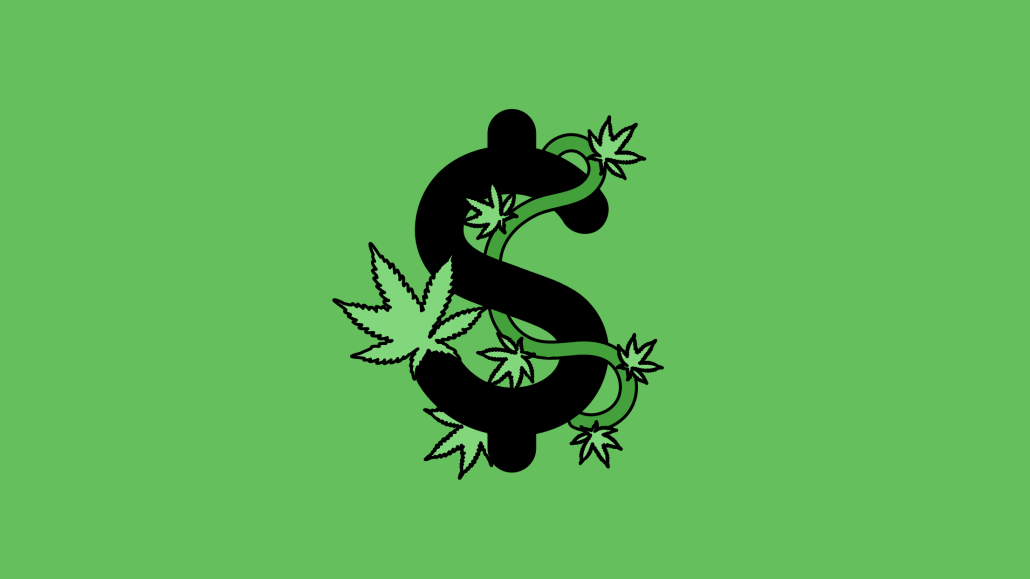‘An educational stance’: Publishers mull CBD’s alluring – and complex – commerce opportunities

WeedWeek founder Alex Halperin is hoping to create a “Wirecutter for weed.”
This coming Monday, the startup news site, which principally covers regulatory and cultural shifts around marijuana and CBD, will launch Goodie Lane, a separate section of WeedWeek dedicated to evaluating and reviewing CBD products and paraphernalia used to enjoy cannabis, such as vape pens.
Much of Goodie Lane’s content will be distributed through search and newsletters, but WeedWeek has also built a partnership with Cannaclusive, a startup focused on diversity in the cannabis industry, for help with distributing content on platforms like Instagram, where WeedWeek has less of a presence.
“The numbers are potentially very attractive,” Halperin said, referring to the affiliate commissions available on many kinds of CBD products, which can range from $29 pain relief creams to $120 vials of oil. Like Wirecutter, Goodie Lane will monetize through affiliate links, which pay WeedWeek when a reader makes a purchase via one of the links on Goodie Lane’s site; Halperin said that CBD product commissions can pay anywhere from 20 to 40 percent of the purchase price.
In theory, CBD could be a cash cow for publishers’ commerce operations, thanks to exploding consumer interest in the category and audiences of stressed out people who have spent much of 2020 stuck in their homes.
Yet few mainstream publishers have managed to turn CBD into a big hit for their commerce businesses, thanks to a combination of regulatory uncertainty, a glut of product, and a hesitancy among publishers to forcefully endorse products that some people — and some doctors — still regard with skepticism.
“I have no question in my mind that it would drive a substantial amount of commerce revenue [if we recommended things indiscriminately],” said Kate Spies, svp and gm at Leaf Group, which operates the health and lifestyle media brands Well + Good and Livestrong. “But we try to err on the side of facts and science. Unless we have a dermatologist, a doctor, an expert co-sign that product, we don’t cover it.”
After years as a niche category, CBD products have quickly grown into a multibillion dollar industry and the market is expected to get much bigger, from $9.3 billion in 2020 to $23.6 billion by 2025, according to GrandView Research.
Much of that growth is being powered by online sales, and a lot of the advertising promoting those products has been concentrated in affiliate spending. Up until recently, CBD and marijuana brands could not advertise on Google or Facebook, and networks like Taboola and Outbrain wouldn’t sell them traffic either.
But the growth has also attracted a horde of new brands, many of which make claims that are hard to back up. “This space has gotten extremely crowded,” said Matt Stein, the cofounder and chief revenue officer of RevOffers, an affiliate network that specializes in CBD merchants. Stein said that, at a recent industry conference, he saw a presentation by the Brightfield Group that estimated that there are over 3,500 CBD products available for purchase.
Adding to the complexity is a dense, incomplete web of regulations around which kinds of products can be sold and promoted. In many states, publishers are barred from recommending CBD products that are derived from anything other than hemp; in others, they cannot recommend products unless they are for medicinal reasons, and using the advice of medical professionals.
And so, despite a lot of signals that consumers are interested in CBD products — clicks on CBD content from February to May 2020 were five times higher than they were over that same stretch of 2019, according to the affiliate network CJ — many publishers are opting for half measures, writing commerce content that offers more explanation than recommendation.
“Most of them [publishers] have taken an educational stance,” said Lauren Newman, svp of U.S. revenue at Skimlinks. “They don’t want to be liable if someone has an adverse reaction.”
An earlier version of this story misidentified the company estimating 3,500 CBD products are available for purchase; it is the Brightfield Group, not Bright Eyes.
More in Media

Digiday+ Research: Dow Jones, Business Insider and other publishers on AI-driven search
This report explores how publishers are navigating search as AI reshapes how people access information and how publishers monetize content.

In Graphic Detail: AI licensing deals, protection measures aren’t slowing web scraping
AI bots are increasingly mining publisher content, with new data showing publishers are losing the traffic battle even as demand grows.

In Graphic Detail: The scale of the challenge facing publishers, politicians eager to damage Google’s adland dominance
Last year was a blowout ad revenue year for Google, despite challenges from several quarters.








